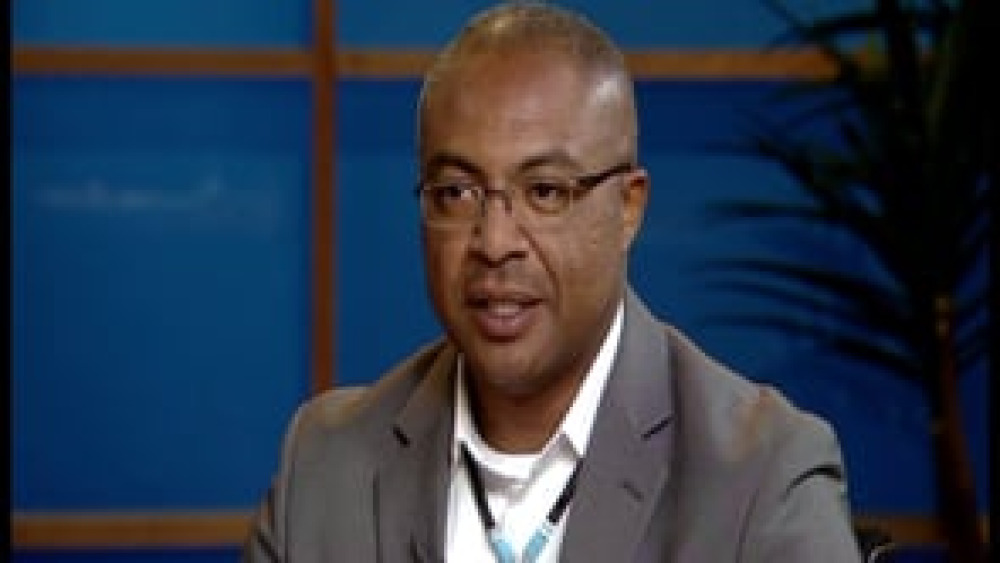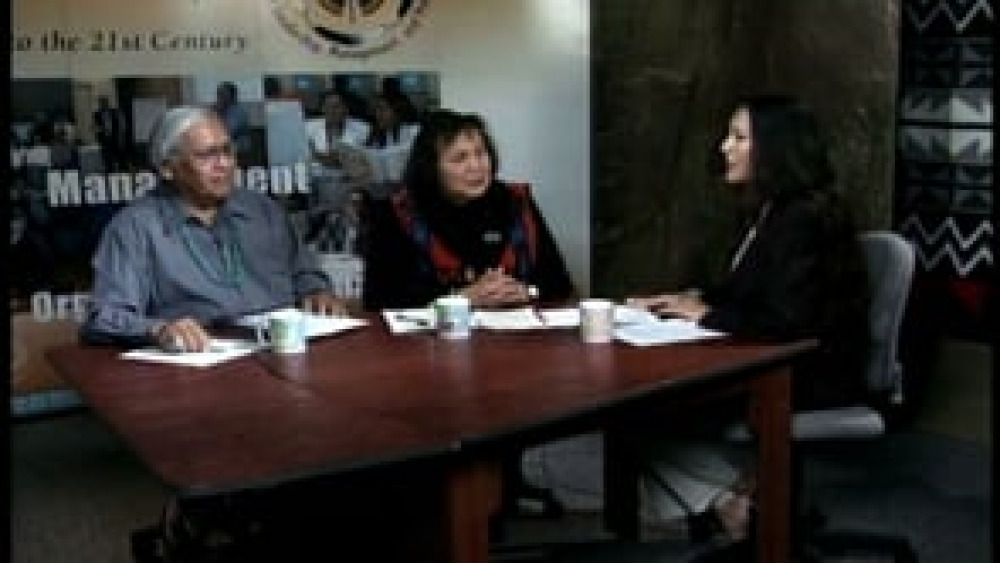Native leaders discuss why it is important for Native nation leaders to take a strategic approach to leadership, stressing that the decisions they make must be made with the culture and values of their people and the next seven generations in mind.
Additional Information
Briggs, Eileen. Native Nations Institute for Leadership, Management, and Policy, University of Arizona. Prior Lake, Minnesota. December 1, 2011. Presentation.
Lyons, Oren. "Rebuilding Healthy Nations." Honoring Nations symposium. Harvard Project on American Indian Economic Development, John F. Kennedy School of Government, Harvard University. Cambridge, Massachusetts. September 27-28, 2007. Presentation.
Makil, Ivan. Nation Building seminar. Native Nations Institute for Leadership, Management, and Policy, University of Arizona. Tucson, Arizona. April 6, 2005. Presentation.
Pico, Anthony. Honoring Nations symposium. Harvard Project for American Indian Economic Development, Harvard University. Cambridge, Massachusetts. September 2004. Presentation.
Russell, Angela. "Leadership and Strategic Thinking" (Episode 9). Native Nation Building television/radio series. Native Nations Institute for Leadership, Management, and Policy and the UA Channel, The University of Arizona. Tucson, Arizona. 2006. Television program.
Transcript
Oren Lyons:
"From our directions and from the instructions given to the leaders of the Haudenosaunee when they say -- among many other instructions -- we are reminded and the words are direct, 'When you sit and you counsel for the welfare of your people, think not of your children, think not of yourself, think not of your family, not even your generation. Make your decisions on behalf of seven generations coming.' Now that's an instruction on responsibility, a very serious instruction on responsibility. Peacemaker said that, I don't know, a thousand, maybe two thousand years ago. It resonates today. Today it resonates. Be concerned about the seven generations and how we are going to survive and we survive by doing on a daily basis."
Anthony Pico:
"The strategic question the Viejas council engages should not be 'who runs the mailroom?' but what kind of society are we trying to build? What are our priorities as a community? What uses should we make of our resources? What relationships with outsiders are appropriate and necessary? Who can we trust? What do we need to protect? And what are we willing to give up?"
Eileen Briggs:
"I think that there's a general receptiveness to the new ideas that come. I think the biggest challenge for ourselves is how we listen to each other, say what about, what have we forgotten. Because that's where our biggest challenge...and I have to say I don't know if the word is fight or struggle maybe, is that you have people coming in and saying, 'You have forgotten who you are because this is, look at how you're running this meeting. Look at how this is getting done.' And it's important that that auntie stands up and sort of reminds us and maybe scolds us about, 'Look at, look at the way things used to be done. And look at this.' And that's what, I think in my analogy, that's the message she's giving us, is remember who you are. What were and are the values you were raised with? And look at how we're behaving now and how we're getting this done, how we're approaching something, what we're open to, what can we bring to this, and not just swallow this idea from the outside, whole, and say, 'Hey, we've been successful. Because that's this idea -- we did the thing.' Did we do that at the compromise of ourselves? Have we stepped back and given ourselves time to say, 'Does that fit us? Is this right for us? Is how we're doing this work for us?'"
Angela Russell:
"Well, among our people, when we say leader we say '[Crow term],' which means a good person or a good man, and I think leadership is extremely important to all of our nations, and it's important not only for the leader to have a vision for his people, but as citizens of a particular nation, we need to be very supportive to our leader, but we also need to be participatory in a sense that we need to give some direction, we need to give support, we need to give encouragement. I think too many times it's easy to be very critical and to not look ahead toward the vision. You have to have goals, you have to have reachable goals, whether they're short-term or long-term. So leadership is very important, but it's a very, very difficult thing, because in the past our leaders were usually men who had many deeds, many accomplishments and that's how they became a leader. They were supported by the community, and today it's a whole different role, different dynamics, a different society we live in -- lots of challenges ahead for leaders."
Ivan Makil:
"And as leaders, that is one of the responsibilities you have, is to have that vision and to help to define a vision for you people so that there's going to be several paths that you can take but you want to define something that provides the kinds of things that your people need, the kinds of things that your people are looking for, the kinds of things that are consistent with the lifestyle and those values that are important to your people, the kinds of things that I call seven-generation thinking. Seven-generation thinking meaning very simply that when we make decisions -- and this is a traditional concept as well -- that we think about the impacts of our decision on the next seven generations. Our ancestors in the Phoenix valley two thousand years ago built a canal system and they did it with a lot of vision. They did it with a lot of thought. But interestingly enough, two thousand years later, at the turn of the twentieth century, the settlers came in here with all their technology and their engineers and they're going to lay out, map out this whole new system of irrigation for the valley so there could be growth and opportunity in the valley for Phoenix. So they started mapping this area out and you know what was so interesting? The areas they laid out for the canal system for the Phoenix valley were a direct overlay over the traditional hand dug canals that our ancestors built two thousand years ago, because it made sense, because it was seven-generation thinking, it was thinking about the impact on the next seven generations. And although that's a concept, just think: that system lasted for more than seven generations."



